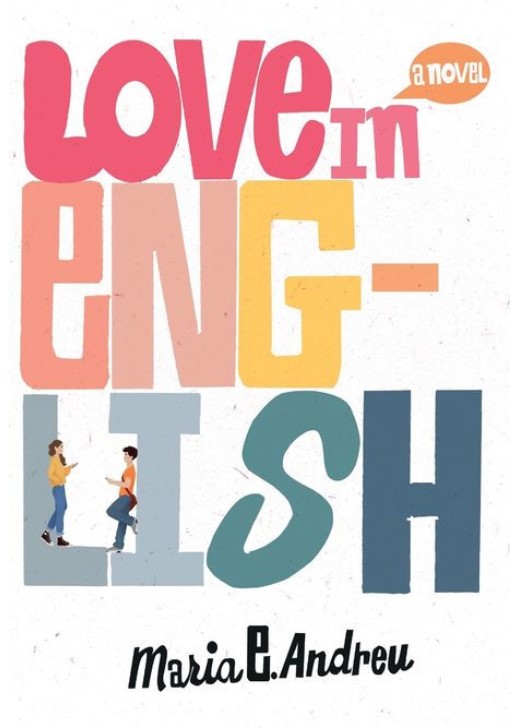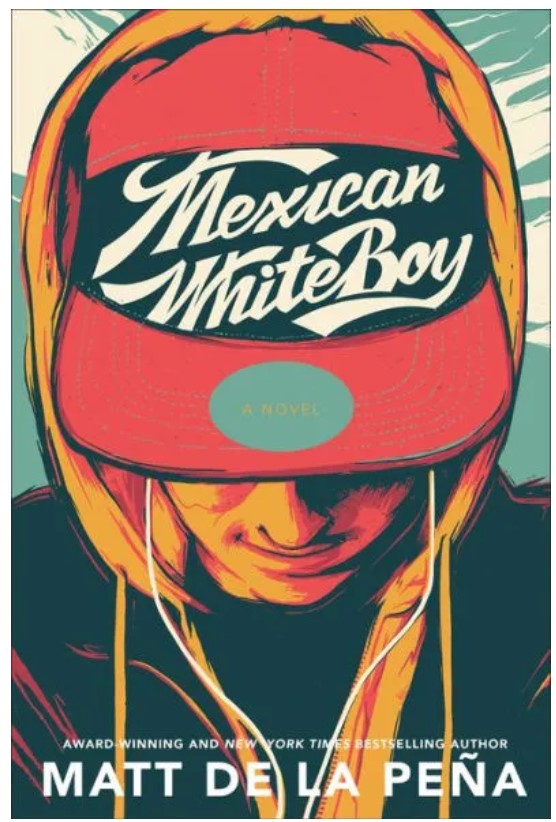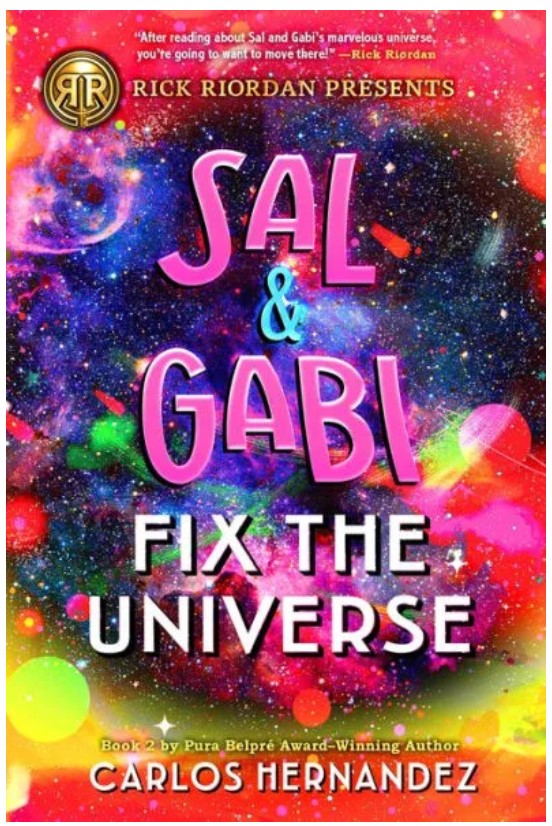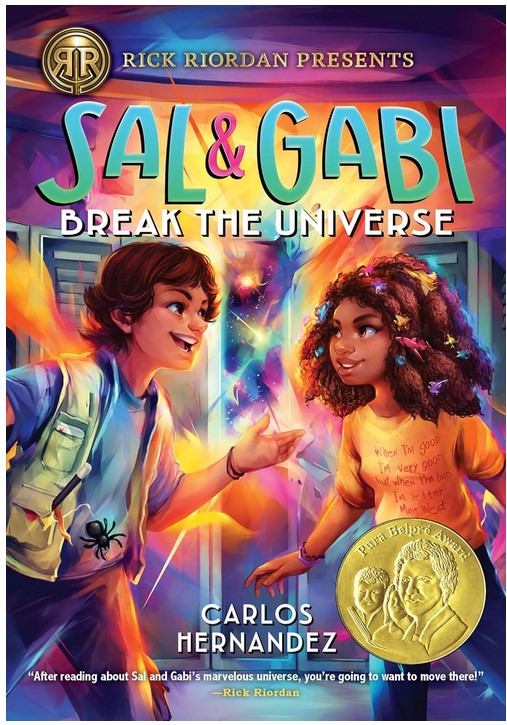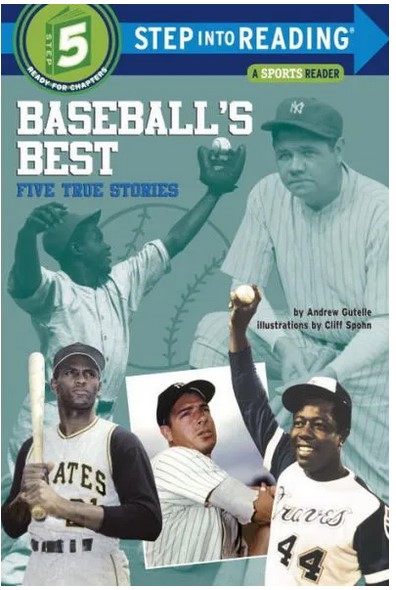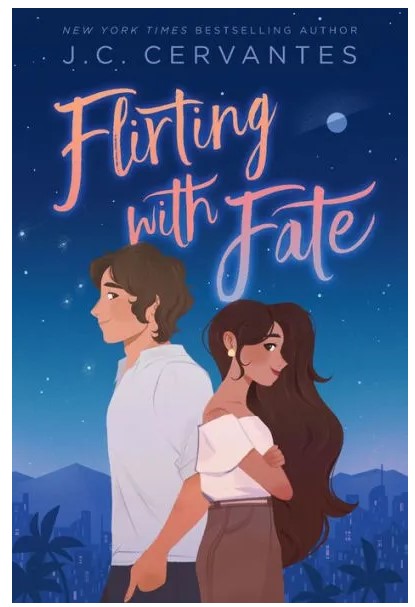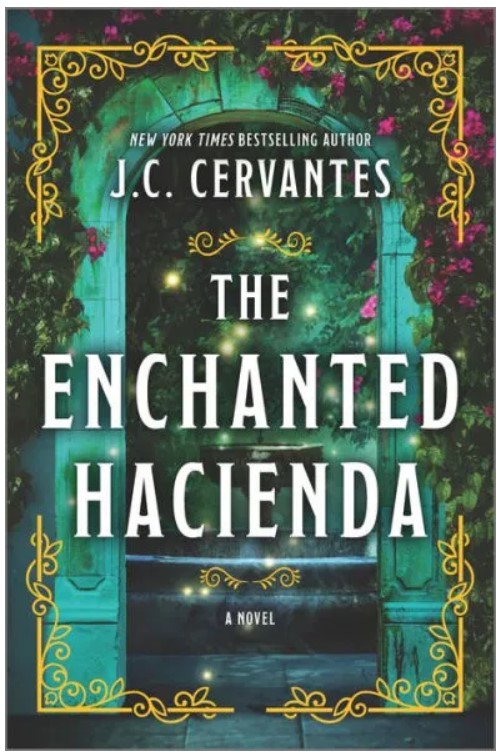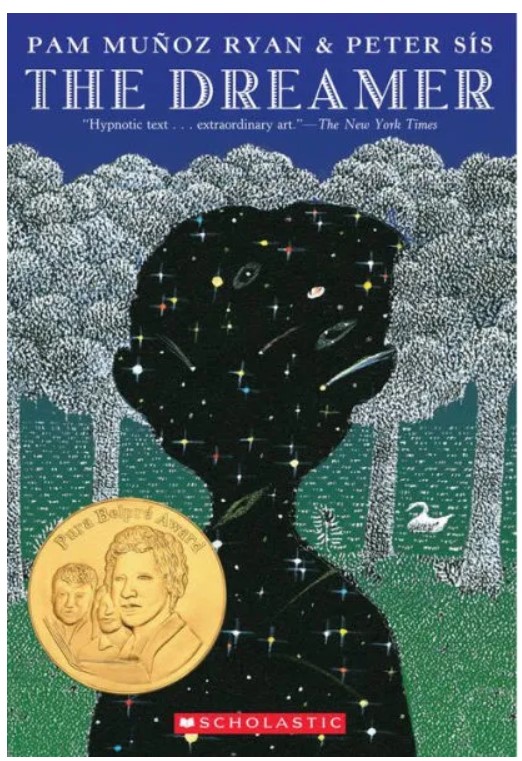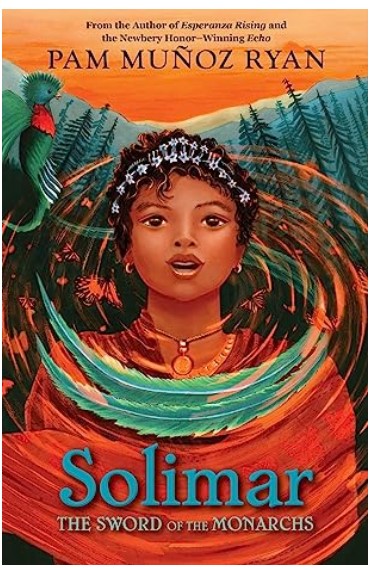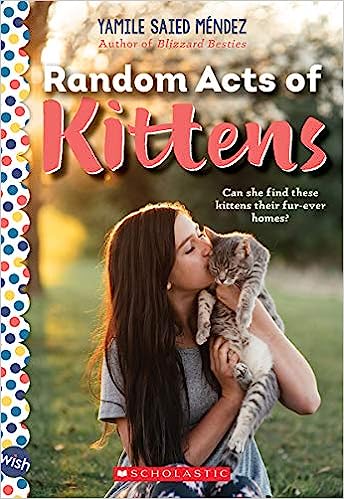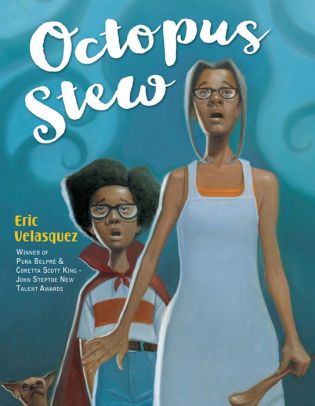When Sal Vidón meets Gabi Reál for the first time, it isn’t under the best of circumstances. Sal is in the principal’s office for the third time in three days, and it’s still the first week of school. Gabi, student council president and editor of the school paper, is there to support her friend Yasmany, who just picked a fight with Sal. She is determined to prove that somehow Sal planted a raw chicken in Yasmany’s locker, even though nobody saw him do it and the bloody poultry has since mysteriously disappeared.
On his very first day at his new school, Sal meets Gabi Reál, “student council president and obviously one of the smartest kids in school,” and Gabi is absolutely set on understanding how Sal performs some of his most difficult magic tricks.
Sal feels a bit singled out because of his diabetes, and there are a few instances when Sal struggles to manage his blood sugar. But Sal also has a secret, he can reach into other universes. Sal explains, “We are not alone in the universe my friends . . .There are countless other universes above and beneath our own like pages in a book.” Sal has the unique ability “to see these other worlds” and access them.
After reaching into another universe, Sal realizes, “All the holes I’d made so far usually didn’t last long . . . [This] hole wasn’t gone yet. That was bad. Until a hole was closed, there was a risk that stuff I didn’t intend to bring over from the other universe would come through on its own.” Sal and his new friend, Gabi, discover that she can also see the holes in the universe, and Sal explains, “I’d never met anyone else who could see [the holes].” Sal and Gabi team up, on a mission to learn more about how to close the holes into other universes.
Though Hernandez’s novel centers around Sal and Gabi learning more about other universes, as well as how it impacts their universe, Sal’s diabetes is an important theme as well. Sal had to go explain his condition to the principal on the first day of school. Sal’s principal admits, “We’ve never had a student with diabetes before,” but that she will instruct her teachers to learn “how to meet [Sal’s] needs.” Readers will likely learn a great deal about diabetes and readers with diabetes will appreciate being represented by Sal.
Readers will relate to Sal as he starts at a new school and tries to make new friends. Sal is an empathetic character who puts time and effort into his passions, one of which is magic tricks. Sal consistently makes Gabi and other characters in the book laugh when they are feeling down. Sal explains, “I started studying magic when my mami died. It was a way for me to cope with the pain and to try to take back control of my life . . . That’s why I love performing tricks now. I love to see people’s eyes fill with wonder.” Sal always does his best to make other characters feel happy, saying, “Sometimes, when [life’s] too hard, when it hurts too much, only silliness can save us. And I’m all about doing whatever it takes to help people make it to tomorrow.”
A major theme of the story is coping with the pain of losing a loved one. Sal often reflects on how much he misses his mom. When Sal is struggling with grief, Sal’s dad reveals, “[Mami’s] death was the worst thing that’s ever happened to either of us . . . I thought my life was over when she died . . . I thought it would kill me, you know. Literally stop my heart.” And when Sal asks his dad what helped him keep going while he was grieving, Sal’s dad says, “You, mijo.” Sal and his father’s bond is a positive force throughout the novel, and they are able to support each other after the loss of Sal’s mother. Readers will learn from this novel to “trust in the people that love you,” and this will help you during the hardest times in life.
Readers who enjoy fantasy, reading about alternate realities, or magic tricks will adore this book. Hernandez showcases a heartwarming and strong friendship between Sal and Gabi. Sal explains that he and Gabi bonded over embracing the nuances of each other’s families: “Months later, [Gabi] told me the way I had met her interesting, complicated family, pleasantly and without judgment. . . made her think I was the most mature seventh grader she had ever met.” This book discusses more sensitive topics such as grief and struggling to manage type one diabetes, but throughout the novel Sal and Gabi showcase strong friendship, humor, and kindness toward others, and in this way the book maintains an uplifting tone.
The ending perfectly sets up the second book in the series, Sal and Gabi Save the Universe, as Gabi and Sal have used Sal’s ability to reach between universes to save Gabi’s sick, newborn brother—but they do not know what the consequences of this interference will be. Readers will be on the edge of their seats to see what happens in Sal and Gabi’s next adventure.
Sexual Content
Violence
- Sal encounters a bully on his first day at school. The bully, Yasmany, “slapped [Sal’s] diabetes bag out of my hands. It hit the ground with a glassy crunch. My stomach crunched right along with it.” Yasmany does eventually apologize to Sal.
- Sal and Gabi discover that Yasmany has run away from home because he feels unsafe. After Sal and Gabi help him and take him to eat and stay with Gabi’s family, Sal asks Gabi, “Is Yasmany’s papi a bad guy?” Gabi reveals, “The bad guy is his mom.”
Drugs and Alcohol
Language
- Sal explains a Cuban insult to Gabi, saying, “‘Sapingo’ is a classic Cuban insult. It’s basically how you tell the person whom you are insulting that they’re about as smart as a day-old skid mark.”
- At his previous school, the majority of students are white while Sal is Cuban. Sal says, “kids were telling me to ‘go back to brown town’ all the time.”
- Sal explains, “‘Cacaseca’ is the word Miami talk-show hosts use instead of BS. It literally means ‘dry poop,’ but it really means ‘Dude, your poop is so played out. Don’t try to play me with your played-out poop.’”
- While walking home from school, Sal is nearly hit by a car. Sal explains, “I never even flinched. Not because I am very badass or anything. I was paralyzed. Classic deer-in-headlights syndrome.”
Supernatural
- When doing a magic trick, Sal reaches into another universe and creates a hole. He “made a pretty big rip in the universe inside that locker.” Because of this rip, Sal and Gabi are briefly able to see into another universe, where there is a chicken factory. But the hole does eventually close, and they go back to their own universe.
- Because of his ability to reach into other universes, Sal has been able to bring other versions of his Mami into his world. For instance, Sal says, “I had [brought] Mami Muerta back from the dead five times since [her death]. Six including this one.” However, Sal recognizes how each of these versions of Mami is very different from the Mami he knew as a child.
- After Sal uses his abilities to reach between universes to save Gabi’s sick, newborn baby brother, Gabi reveals that she thinks her brother has become “a wormhole to another universe.” This sets up the plot for the second book in the series, Sal and Gabi Save the Universe.
Spiritual Content
- Sal’s classmate, Gladis, wears a necklace with an “ojo turco.” Sal explains, “An ojo turco is a piece of blue glass with a blue eyeball painted on it. People wear them on necklaces and bracelets to protect them against the evil eye.”
- Sal explains that Mami would “tell me stories about how a brujo [witch] could make you sick, make your cows give blood instead of milk, turn your hair white, age you in five seconds, all sorts of stuff.”
- When Sal takes Gabi into another universe for the first time, the people living in the other universe think Sal and Gabi are “evil spirits, or devils, or something. She says she is going to kick us in the butt three times and send us back to hell.” Sal and Gabi convince the lady from the other universe that they are “good spirits.”
- Even though Gabi’s newborn brother is in the NICU and does not have a positive prognosis, Gabi’s mom says, “I lost my faith for a while, too. Do you know how I got it back. . . God is just another word for ‘goodness.’ Every time we do a good thing, God grows. Inside us.”

